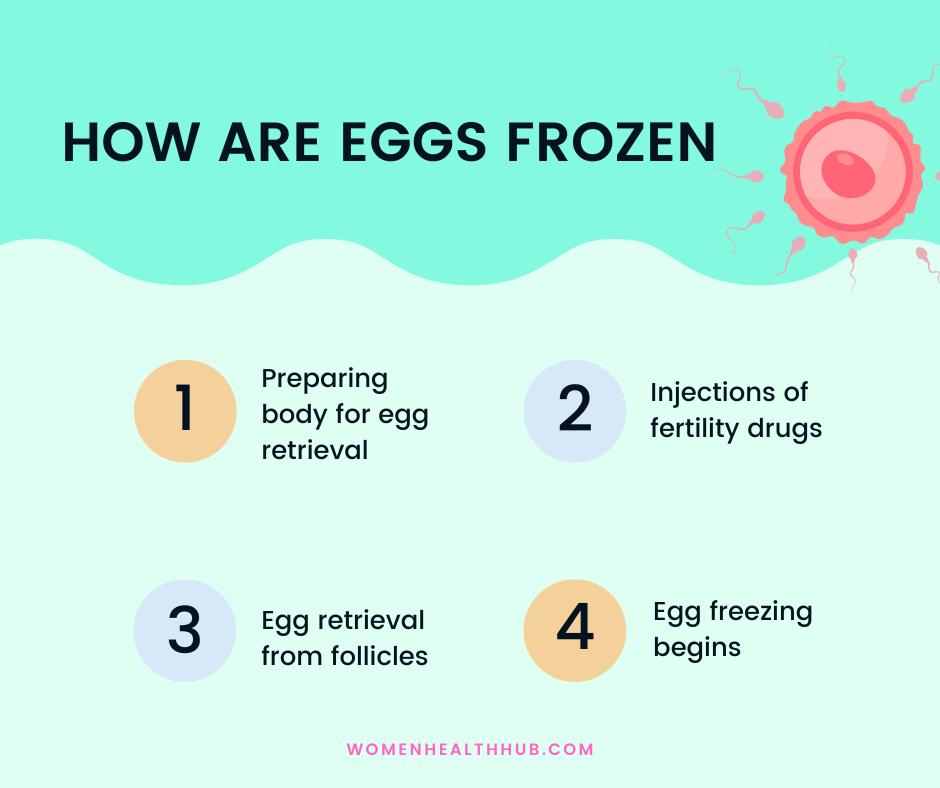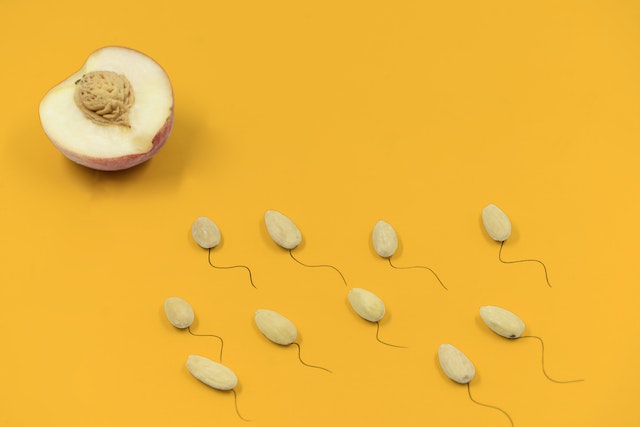Hey there! This post may contain affiliate links. As an Amazon Associate, I earn a teensy commission from qualifying purchases when you buy through these links (at no additional cost to you). For more info, please check the full disclaimer.
Advances in medical science have made pregnancy and childbirth safer, allowing women greater flexibility in planning motherhood. As a result, women today are choosing to have children later in life.
Back in the good old eighties, women typically had their first child in their early twenties. Today, modern women usually have their first child in their late 20s, early 30s, and sometimes even early 40s.
While many conceive naturally, some women freeze their eggs and have children through in vitro fertilization when they feel ready. The chances of getting pregnant with a frozen egg are generally higher than natural pregnancy after 40 years.
How are Eggs Frozen?
Egg freezing, also known as oocyte cryopreservation, is a reproductive method to preserve a woman’s fertility by freezing her eggs.
The first step is preparing your body for egg retrieval. You’ll meet with a fertility specialist who will run tests to determine your ovarian reserve and check for any issues. They’ll also create a stimulation plan tailored to your unique circumstances.
The second step involves daily injections of fertility drugs for around 10 to 14 days. These stimulate your ovaries to produce multiple eggs in several follicles.
Once the follicles reach a certain size, your doctor will give you a “trigger shot” to mature the eggs.
The third step is egg retrieval, done around 36 hours after the trigger shot. You’ll be sedated while the doctor uses an ultrasound-guided needle to suction the eggs from the follicles.
The final step is freezing the eggs. Any mature eggs retrieved will be cryopreserved using vitrification, a fast freezing method, and stored at the fertility clinic.

The eggs can be stored for up to 10 years, and thawed when you’re ready to use them with IVF and embryo transfer. The hope is that at least some of the eggs will fertilize and develop into embryos for implantation.
Read More: Causes of Ovarian Cancer
Why Do Women Freeze Their Eggs?
There are many reasons why women freeze their eggs. Some of the most common ones are:
Career or education
You may want to focus on your professional or academic goals before starting a family. Egg freezing can give you more time and flexibility to pursue your ambitions without worrying about the biological clock.
Medical conditions
Some women may have health issues that affect their fertility, such as cancer, endometriosis, or premature ovarian failure. Egg freezing can allow them to preserve their eggs before undergoing treatments that may damage their ovaries or reduce their egg quality or quantity.
Personal preferences
Egg freezing can give you more options and control over your reproductive choices. You may go for it if you haven’t found the right partner yet or prefer having children later in life.
Genetic Reasons
Certain genetic conditions can affect a woman’s fertility or ability to have healthy children. These may include disorders like cystic fibrosis, Down syndrome, or BRCA gene mutations that increase cancer risk.
By freezing their eggs when they are young and healthy, these women can preserve eggs that do not carry their genetic condition.
Insurance against infertility
Some women freeze their eggs as an “insurance policy” in case they have trouble getting pregnant naturally in the future. The frozen eggs give them another option to try and have a baby.
Read More: Herbal Teas for Guaranteed Natural Pregnancy
Things to Consider Before Freezing Eggs
Egg freezing is not a guarantee of having a baby in the future, but it can increase the chances of success for women who want to delay motherhood.
However, it is also important to consider the costs, risks, and limitations of the procedure before making a decision. Some of the factors to consider are:
- Cost: Egg freezing can be very expensive depending on the clinic and location. There are also other accompanying expenditures, such as the costs of medications, storage fees, or future IVF cycles.
- Risks: Egg freezing involves hormonal injections, surgery, and anesthesia, which can have side effects and complications. Some of the possible dangers are ovarian hyperstimulation syndrome (OHSS), bleeding, infection, injury to organs, or allergic reactions. There is also a risk of losing or damaging the eggs during the freezing or thawing process.
- Limitations: Egg freezing does not guarantee that the eggs will survive the freezing or thawing process, or that they will fertilize or implant successfully. The success rate of egg freezing depends on many factors, such as the age and quality of the eggs, the number of eggs frozen, and the skill of the clinic. According to a study by the American Society for Reproductive Medicine (ASRM), the live birth rate per thawed egg is about 2% to 12%.
Bottomline
Egg freezing is a personal decision that requires careful research and consultation with a fertility specialist. Women freeze their eggs for a variety of reasons. It can be a valuable option for women who want to preserve their fertility for the future, but it is not a perfect solution for everyone. Women who are interested in egg freezing should weigh the pros and cons and discuss their expectations and goals with their doctor.
References:
- https://www.hopkinsmedicine.org/health/wellness-and-prevention/freezing-eggs-preserving-fertility-for-the-future
- https://obgyn.onlinelibrary.wiley.com/doi/full/10.1111/aogs.13573








